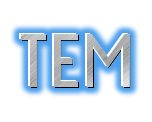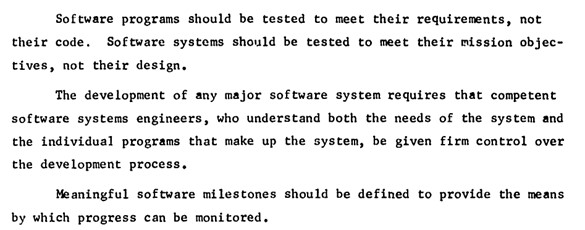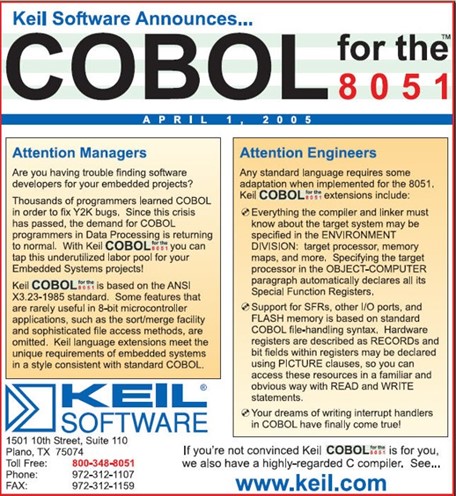| ||||
|
You may redistribute this newsletter for non-commercial purposes. For commercial use contact jack@ganssle.com. To subscribe or unsubscribe go here or drop Jack an email. |
||||
| Contents | ||||
| Editor's Notes | ||||
|
Tip for sending me email: My email filters are super aggressive and I no longer look at the spam mailbox. If you include the phrase "embedded" in the subject line your email will wend its weighty way to me. The next advance in chip making? A "gate all around transistor." Article about this here. Jacob Beningo's recent article about the popularity of Rust in the embedded world is interesting. He says today 70% of teams use C and 23% use C++. I looked at my historical data from a survey in 2010 in Embedded.com. Back then 60% used C, 20% C++. So the numbers haven't changed much in a decade and a half. One could argue that we are resistant to change... or that C/C++ are still the best solutions for most embedded projects. I've given up C for non-embedded work in favor of Python, and Rust is certainly interesting. But they are basically non-starters, at least for now, in the embedded world. Here's a very interesting article about what we must do to use C++ more securely. |
||||
| Quotes and Thoughts | ||||
|
Programming will remain very difficult, because once we have freed ourselves from the circumstantial cumbersomeness, we will find ourselves free to tackle the problems that are now well beyond our programming capacity. - Dijkstra |
||||
| Tools and Tips | ||||
|
Please submit clever ideas or thoughts about tools, techniques and resources you love or hate. Here are the tool reviews submitted in the past. Downloading AI-generated code? Better be careful. This article is thought-provoking. Kobus Steyn, responding to a query in Muse 484 about dysfunctional teams, wrote:
|
||||
| What We Have Not Learned | ||||
|
Greg Bollendonk sent a link to a report from 1977 about the software development used by the Viking Mars landers. Its 300 pages make a number of useful recommendations for future software programs using the lessons learned in Viking. A few stand out; alas, today, half a century on, these are still too often neglected:
|
||||
| Complexity | ||||
|
Frequent correspondent Charles Manning always has something inciteful to say. He wrote:
|
||||
| Failure of the Week | ||||
From Doug Abbott: Have you submitted a Failure of the Week? I'm getting a ton of these and yours was added to the queue. |
||||
| Jobs! | ||||
|
Let me know if you’re hiring embedded engineers. No recruiters please, and I reserve the right to edit ads to fit the format and intent of this newsletter. Please keep it to 100 words. There is no charge for a job ad.
|
||||
| Joke For The Week | ||||
These jokes are archived here. Vlad Z sent this. I remember when it ran in the print edition of Embedded Systems Programming. |
||||
| About The Embedded Muse | ||||
|
The Embedded Muse is Jack Ganssle's newsletter. Send complaints, comments, and contributions to me at jack@ganssle.com. The Embedded Muse is supported by The Ganssle Group, whose mission is to help embedded folks get better products to market faster. |










